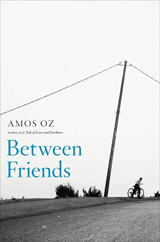Words of the Week: Ron Prosor
 “Myth number one. Some nations seem to believe that a great injustice was done to the Palestinian people when the UN voted to partition then British-Mandate Palestine into two states. In fact, in 1947, Resolution 181 which divided the British Mandate over Palestine, speaks of the creation of a Jewish State no fewer than 25 times. The resolution declared that: ‘independent Arab and Jewish States shall come into existence.’
“Myth number one. Some nations seem to believe that a great injustice was done to the Palestinian people when the UN voted to partition then British-Mandate Palestine into two states. In fact, in 1947, Resolution 181 which divided the British Mandate over Palestine, speaks of the creation of a Jewish State no fewer than 25 times. The resolution declared that: ‘independent Arab and Jewish States shall come into existence.’
The Jews welcomed the plan and joyously declared a new state in their ancient homeland. But the Arabs rejected the plan and – joined by the armies of five Arab nations – launched a war of annihilation against the newly born Jewish state.
Sixty-five years later you still don’t hear the Palestinians talk about two states for two peoples. Sure, Palestinian leaders call for an independent Palestinian state, but they insist that the Palestinian people return to the Jewish state. This is a euphemism for the destruction of the State of Israel and a major hurdle to peace.”
Source: Text of speech to UN Security Council, by Israel’s Ambassador to the UN, Ron Prosor, October 22, 2013. Read about Myths 2-5, too.
(I often think that Ambassador Prosor has one of the most thankless jobs in the world. For some insights into how he manages it, check out Yair Rosenberg’s recent Tablet article.)


